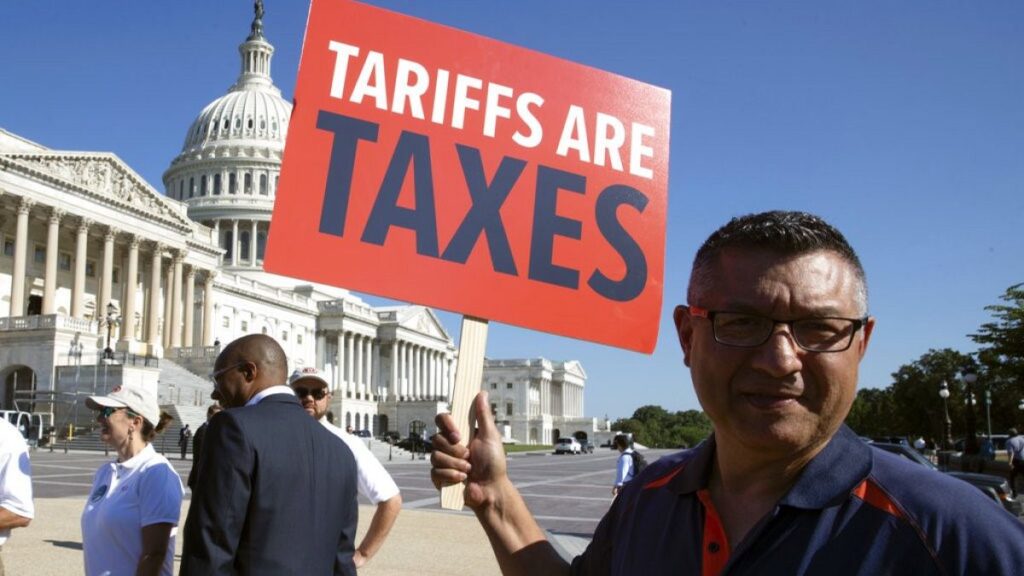The uncertainty surrounding Trump’s trade policies will hinder growth in the eurozone, according to economists from Goldman Sachs.
The eurozone can expect a 0.5% hit to real GDP due to Trump’s victory in the US presidential election, predicted economists at Goldman Sachs.
In a report published in the wake of the results, experts at the investment bank said that the outcome will hurt some nations more than others.
Germany could expect a 0.6% hit to real GDP, while Italy and the UK could see negative effects of 0.3% and 0.4% respectively.
Economists predict the hit will materialise between the first and fourth quarter of 2025.
They now estimate eurozone growth at 0.8% in 2025, down from a previous forecast of 1.1%. In 2026, growth is predicted at 1%, down from 1.1%.
Tariffs and interest rates
One cause for concern is Trump’s suggested tariffs on European imports.
“While the proposed 10% across-the-board tariff is a clear risk, our baseline expectation is that Trump imposes a more limited set of tariffs on European economies, targeting primarily auto exports,” said GS researchers.
According to the ACEA, the US is the second largest market for EU vehicle exports – after the UK (counting in units).
In 2023, 16.9% of new car exports from the EU went to the US.
GS economists nonetheless added that despite the risk of import duties, “the actual magnitude of tariff increases might matter less for growth than the trade policy uncertainty created”.
The report also explored the potential inflationary effects of tariffs in the eurozone, estimating a six-basis-point lift.
Tariffs could increase inflation as imported goods will be more expensive, although economists suggested that increased import costs will be balanced out by reduced demand for these goods in the eurozone.
On the subject of borrowing costs, the report said that Trump’s policy agenda should reinforce the case for lower interest rates across Europe.
Reduced policy rates could help the eurozone to boost its output, set to be negatively affected by Trump’s policies.
“We lower our forecast for the terminal ECB deposit rate from 2% to 1.75% by adding a further 25bp rate cut in July 2025,” said economists.
Defence budgets and macro movements
The research from GS suggests that Trump’s win will likely result in increased defence spending in Europe.
Trump has repeatedly criticised the military alliance NATO, arguing that the US contributes too heavily while EU members don’t spend enough.
The president-elect has also suggested that the US would end the war in Ukraine “in 24 hours”.
He has not given details on how this would be achieved, but it’s likely that Trump will cut support for Ukraine, thus jeopardising European security.
Increased defence spending has the potential to push up growth as more funding will flow into sectors linked to military manufacturing.
Even so, GS economists predicted that any resulting growth boost is likely to be “limited by modest military spending multipliers in Europe, upward pressure on long-term yields from higher deficits and negative confidence effects from elevated geo-political risk”.
In other words, growth in the defence sector won’t necessarily spill over into the rest of the economy.
On top of this, higher government deficits linked to defence spending will push up borrowing costs, thus constraining growth.
GS analysts also predicted that “net spillovers from shifts in US macro policy and financial conditions” are set to be small.
It’s expected that the US will see a spike in inflation due to proposed Trump policies, which could prompt the Federal Reserve to slow interest rate cuts.
This is likely to strengthen the dollar, thus weakening the euro.


